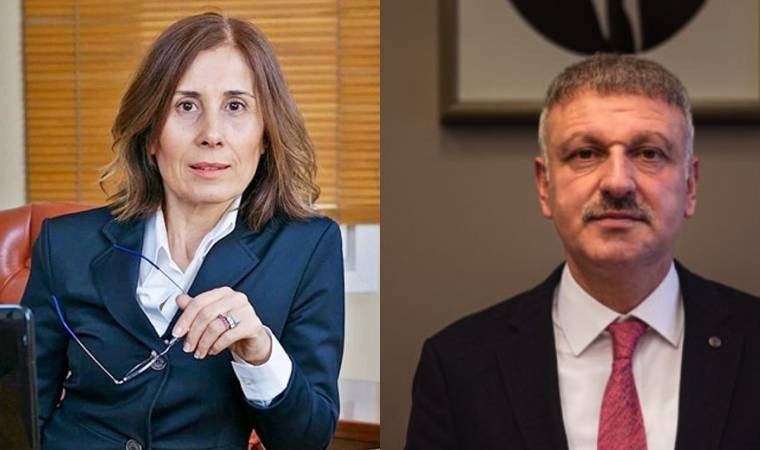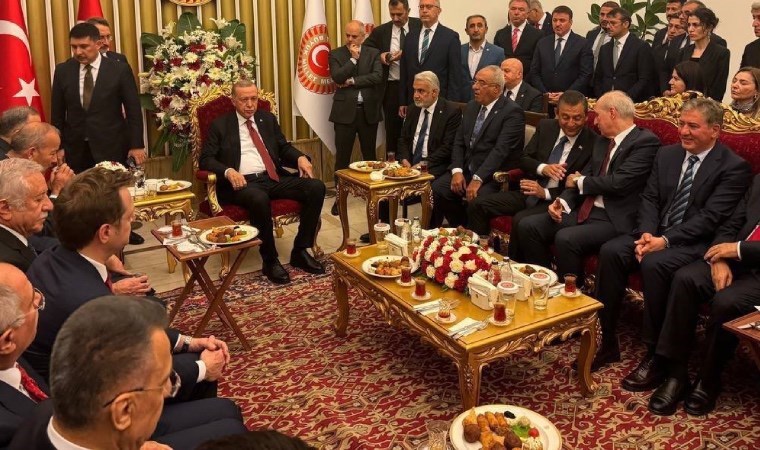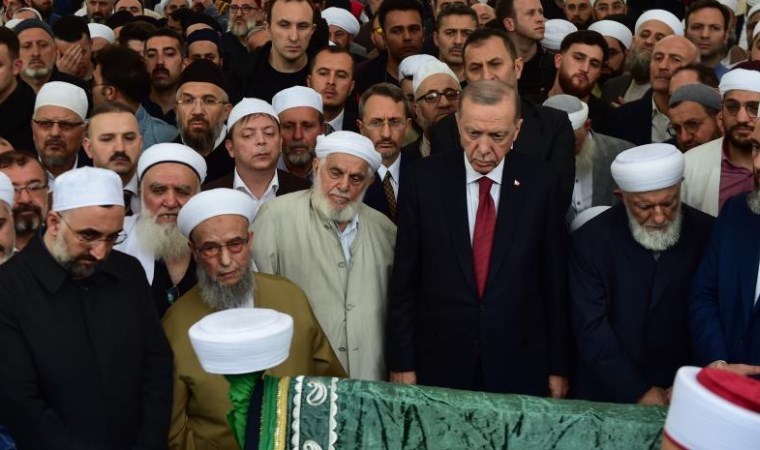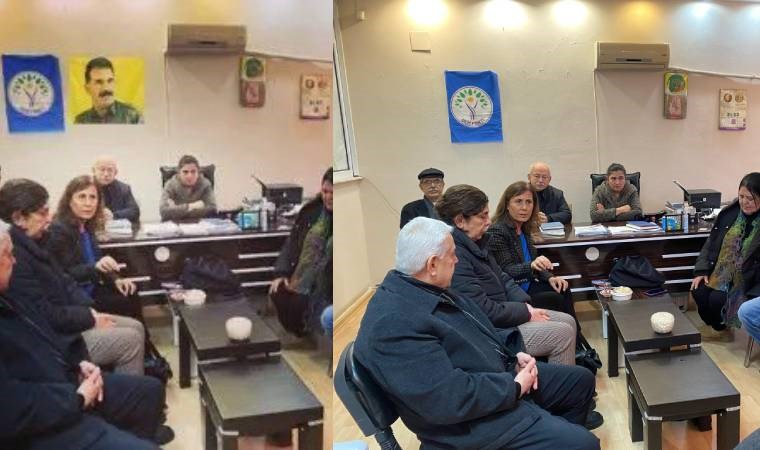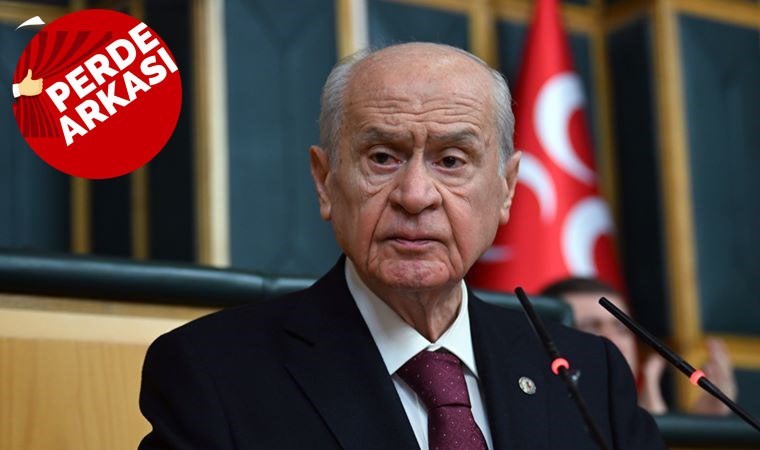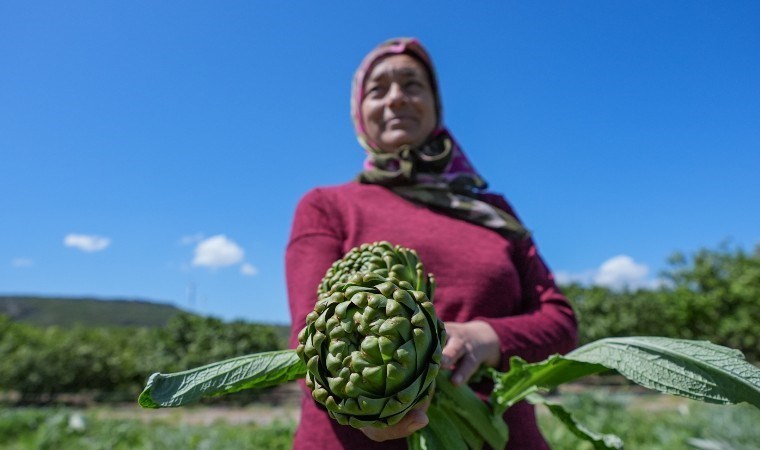Full text of Akın Atalay’s defence at the fourth hearing of the Cumhuriyet trial
The trial in which our Editor-in-Chief Murat Sabuncu, Executive Board Chair Akın Atalay, reporter Ahmet Şık and accounting employee Emre İper are being held in detention on baseless and illogical allegations with our newspaper’s editorial policy made the subject of charges continued today at Istanbul Serious Crime Court No 27. At the trial, Cumhuriyet newspaper’s Executive Board Chair Akın Atalay submitted a defence.

The full text of the defence Akın Atalay made in court follows:
Learned Bench,
There does not remain a great deal to be said about this trial in which Cumhuriyet newspaper’s managers, columnists and employees are charged with aiding terrorist organisations.
I wish to stress one point as I begin my comments. The things I am to say here and some of the words I will use may appear to be harsh or brusque and may be injurious, wounding and disturbing. I wish to state in advance that I have no intent to defame or belittle anyone; I have no such aim. I also state this, not as any kind of precaution, but as a sincere pronouncement. My basic concern is to express in language that is as plain and frank as possible the truth from my own window.
We have completed one year in detention. For the period of some five months that passed from the date on which we were first detained until the indictment was submitted to your court, the charge filed against us in rulings ordering the continuation of detention by various penal judgeships of the peace was cited to be “committing crime on behalf of an organisation while not being an organisation member” having a counterpart in the Turkish Penal Code (Article 220/6 of the Turkish Penal Code).
In line with the opinion on each occasion of the prosecutor pursuing the investigation seeking extension of detention for this offence, decisions were also passed by duty penal judges of the peace ordering the extension of detention.
However, the prosecution, unable in the course of a seven-and-a-half-month investigation to unearth a crime committed on behalf of the organisation, now amended the charge in the indictment it drafted to aiding terrorist organisations. Over the seven-month period that has passed from that date until now, your bench has in turn ordered the continuation of detention on this new amended charge.
In fact, I did not wish to touch on the grounds you include in the decisions ordering the continuation of detention and make an assessment of these grounds, because, were it necessary to speak frankly and sincerely, our detention ever since the start of the proceedings has not been based on legal or statutory grounds and has been based on a political plan and decision; I thought that the statements and wording contained by way of grounds in extension of detention orders were much more of an excuse and an endeavour to find a legal pretext than grounds; I still think so. I hope that so thinking and expressing this thought of mine is subsumed under the right to defence.
Learned Bench,
Ever since the first hearing session, you have adduced four statutory articles by way of legal basis in extension of detention orders. You say:
“Assessing Articles 100 of the Code of Criminal Procedure, 6 of the European Convention on Human Rights, 10/2 of the European Convention on Human Rights and 28/2 of the Constitution in conjunction and taking into consideration the legislation and opinion that the measure of detention should be necessary and proportionate (...) TO EXTEND THEIR DETENTION...”
The first article that you adduce as the basis for the extension of detention order is Article 100 of the Code of Criminal Procedure with the heading “Grounds for detention.” This is the article that regulates the circumstances that must occur and the situations under which detention can be ordered, i.e. that directly regulates detention. There is no formal problem here.
But, I really have difficulty understanding and making sense of the other statutory articles that you have listed. For, what conforms to the normal course of affairs, the word’s counterpart in the dictionary and semantics is that these articles can serve as grounds and the basis, not for the continuation of detention, but, on the contrary, for release. Your bench is either taking its cue from those who say, “They are not being prosecuted for journalistic activity; they are terrorists not journalists” and expressly stressing that detention is directly related to the articles of the European Convention on Human Rights with the heading “freedom of expression” and that of the Constitution with the heading “press freedom” or, at the very least, is conceding a point and expressly stating that what is on trial in these proceedings is freedom of expression and press freedom, that is that they have to do with journalistic activity. In my opinion, it is necessary to be a little more fastidious and painstaking in these proceedings that the public is following with attention and interest. For, the second paragraph with the heading “press freedom” of Article 28 of the Constitution that you have included among the legal bases for extension of detention orders was repealed in 2001 through Law number 4709. Indeed, the following provision was contained in this paragraph that was repealed:
“Publication may not be made in any language that is forbidden under the law.”
The point I want to make is that the provision of this paragraph would have had absolutely no relevance to the matter, proceedings and detention. Even were we to look at the provision of the following third paragraph as if it were now the second paragraph, we are unable to obtain any enlightenment. The following provision is in that paragraph:
“The State shall take the necessary measures to ensure freedom of the press and information.”
As such, as per your grounds for detention, is detaining journalists the measure the state takes to ensure freedom of the press and information?
Please do not find it odd that we find odd the adducing of a legal provision placed in the Constitution beneath the heading “Press freedom” in whose first paragraph it is stated, “The press is free, and shall not be censored” and in the following paragraph, “The State shall take the necessary measures to ensure freedom of the press and information” as grounds for our detention, because this situation has something odd about it whichever way you look at it.
On the other hand, another statutory provision you have cited among the legal bases for the extension of detention order is Article 6 of the European Convention on Human Rights. And this is an astonishing situation, because the provision on detention of the European Convention on Human Rights is Article 5 with the heading, “Right to liberty and security”. The European Court of Human Rights examines and deliberates on applications over the injustice of detention or its exceeding a reasonable period within the context of Article 5. Just as the statutory provisions in domestic legislation on detention are Articles 19 of the Constitution and 100 of the Code of Criminal Procedure, the equivalent provision of the European Convention on Human Rights is Article 5. If the aim was to mention that our detention does not just comply with domestic legislation but also with the European Convention on Human Rights, and also to proclaim this, I think that in this case reference needed to be made to Article 5. Well, what is Article 6 cited your bench’s decisions? It is stated in the first paragraph of this article with the heading “Right to a fair trial” that everyone is entitled to a fair and public hearing within a reasonable time by an independent and impartial tribunal established by law. The second paragraph is devoted to the presumption of innocence, and the third paragraph, in turn, to the minimum rights that must be granted to suspects and defendants. The article bears no relation to the measure of detention.
Given that you include Article 6 of the European Convention on Human Rights among your legal bases for continuing detention, I would in that case like to draw on this article that provides for the right for everyone to be tried at an independent and impartial tribunal and touch on the notion of an independent and impartial tribunal and the significance of this notion.
Initially, I would like to take the opportunity presented here to reiterate a piece of data relating to the Judicial Trust Index to which the Chair of the Court of Cassation most recently referred in the past few days. It says that 70% of our society does not trust the judiciary. Even though on most matters I adopt views and opinions that are in the minority, on this matter my views coincide with the vast majority of society. In common with the majority, I do not trust the judiciary. I am of the view that the judiciary is not independent and impartial. There are hundreds of incidents and concrete facts that vindicate this opinion of mine. One of them is this very trial itself. According to the replies given by 135 judges-prosecutors who participated in the survey study conducted in 2016 by Assistant Professor Dr. Emir Kaya as part of a project measuring the legal mentality in Turkey, 56% of judges and prosecutors themselves were of the opinion that the judiciary was not independent and impartial.
Serious misgivings are harboured by the majority of society that judicial decisions, especially with regard to certain cases, are taken not in the judiciary but in the presidential complex. Numerous examples have been experienced that vindicate these misgivings. There exists concrete evidence that points to strong suspicion in this matter.
Learned Bench,
For some time, various glaring incidents in Turkey have testified to the judiciary being the political rulership’s tool, justice being dispensed by the political rulership rather than independent courts, people seeking justice in the presidential and not judicial complex and to this not being an abstract allegation but, on the contrary, a concrete fact. I will here refer merely to three “judicial” incidents that have occurred in the very recent past. A week or so ago, in an incident that took place during President Erdoğan’s visit to Erzurum, a woman, unable to get past the President’s bodyguards and access him, climbed a tree and made herself visible, and at the instructions of the President, who saw her in the tree, she was admitted to the President’s presence. She said that her husband, an officer in the rank of lieutenant colonel, who had been in detention pending trial for a long time following the 15 July coup attempt on charges related to this, was innocent and called for his release. From the content of this conversation that was reported in newspapers and was not denied, President Erdoğan replied to this request by saying, “I’ll have it looked into.” Following the elapse of 10-15 days, we read in the papers that the application for release had been granted and the officer in question had been released. The moral of the story is that everyone needs to get a good grasp and realisation of where the venue for seeking rights is, where and to which authority applications for release are to be made and how a positive result is to be obtained. If you are facing certain trials and charges, and if you are opposed to the political rulership and have not sworn allegiance to it, you can seek your rights in the presidential not judicial complex. This is the truth of Turkey today.
So, what happens if we seek justice at the wrong address and apply for release to the judiciary, i.e. the courts, and not the presidential complex? The answer to this question has been given in practice so as to serve as a warning to everyone. Let us briefly recall: twenty-one journalists charged with terrorist organisation membership for having worked within or written columns in newspapers within FETO’s media formation were released, following examination at the first hearing, by the majority vote of Istanbul Serious Crime Court No 25, with account taken of the seven months they had spent in detention. The hearing prosecutor had also given an opinion seeking the release of thirteen of those who were released. What transpired following this release order passed in the evening hours after the end of the normal working day on Friday 31 March 2017 has passed as a black stain on Turkey’s judicial history. Let us see what happened immediately after that release order. First, by way of pretext to ensure that the accused were not released from prison until the necessary intervention could be made, the National Judiciary Informatics System became inoperative due to a technical malfunction and it was thus made impossible for the court’s release order to be processed in the National Judiciary Informatics System. Immediately afterwards, the hearing prosecutor, without even awaiting the next day, objected hastily – it might be more appropriate to say helter-skelter - at midnight to the release of the other eight defendants apart from the thirteen whose release he had sought. It did not stop at this! The court bench, having emerged from a long hearing marathon since the start of the week trying the defendants in these proceedings for an unbroken five days until late in the evening, did not or were unable to return home once the hearing ended and passed a ruling dismissing the objection at a speed not particularly – perhaps ever – seen in practice until that day, despite the existence of a statutory period of many days for them to adjudicate the objection, and ordered that the file be remitted to Istanbul Serious Crime Court No 26 for the objection to be examined. On this decision, the file consisting of a good number of binders full of documents was then sent at lightning speed, within minutes, to the court that would examine the objection. This court then, for some reason, granted the objection within a few hours and at midnight on Friday, feeling no need to read the file so as to examine the objection, and annulled the release rulings and ordered the extension of the eight people’s detention. Thus, the order for these eight people’s release did not remain in force for sufficiently long to enable even its momentary application. The judiciary veritably exceeded the speed of light to do what was needed. A few hours later, when we saw the fate to befall the other thirteen defendants whose release the prosecutor had also sought, we were to see that the eight people whose release orders had been annulled at the prosecutor’s objection were relatively lucky and had got off lightly. Quite simply something happened to evoke exclamations of disbelief. Without the malfunction in the National Judiciary Informatics System having been rectified, an arrest warrant for the thirteen defendants whose release had been ordered in line with the prosecution’s opinion was issued in a fresh investigation launched by Istanbul Republic Chief Prosecution into these people for the same acts. Thus, after the necessary measures had been taken by police teams in front of the prison, the technical malfunction in the National Judiciary Informatics System was rectified, the court’s release order was entered into the system, and the defendants who were to be released from prison were handed over to the police to be taken to the police directorate. The events in this sequence until this point are of relevance to those on trial – the blunt message was delivered to them that, “Even if courts and judges erroneously order your release, you cannot secure release.” It did not stop at this and, three days later, the presiding judge and members of the court that ordered the release and the prosecutor that made the opinion seeking release at the hearing were suspended by the Supreme Board of Judges and Prosecutors. A new decree with the force of law was promulgated 15-20 days later and we saw in this decree that the presiding judge who had been suspended on that date was appointed to Konya, one of the members to Çorlu and one of the members along with the prosecutor to Küçükçekmece. In this way, the requisite message was delivered, not just to those on trial, but also to prosecutors and judges and to courts. What was that message? Those who exceed their bounds and err, imagining the judiciary to be independent and impartial, by ruling in line with the law, statute and intimate conviction will initially be suspended by way of warning and, if deemed to have learnt their lesson, they may escape with a relatively mild sanction such as a punishment transfer.
The picture of today’s judiciary and justice system portrayed by these two examples is that the “actual” and “expected” from the point of view of a democratic society are in full contradiction. The “expected” is for the judiciary and courts to be independent and impartial, for judges to rule in line with their intimate convictions in compliance with the law and statute, for court rulings to be binding on everyone and be implemented, and for all those who seek justice to apply to the judiciary and courts. As to the “actual”, this is that judicial independence and impartiality is being trampled on and the quest for justice has moved from the judicial to the presidential complex. We feel there is a historic responsibility to enter this situation in the annuls to make a record for the future, because, rather than surrender and bow to the “actual”, we attach importance and value to the “expected”, and we are fulfilling this duty of ours.
In the face of these facts and realities, I wish to state that I find debate over the judiciary’s independence and impartiality to be an extreme indulgence. Of course, these comments of mine relate to the objective appearance of independence and impartiality. I have insufficient information about the impartiality in a subjective sense of many judges and prosecutors, including those on this bench. Consequently, I cannot venture a negative opinion in this regard.
However much the learned presiding judge made a comment about my good self at the first hearing that might detract from impartiality in a subjective sense in making a comparison with Polat Alemdar in the film “Valley of the Wolves Ambush”, this may be deemed insufficient. Also, his comments at hearings that some experts are problematic, some witnesses are problematic and there are flaws in the indictment, as well as his opinion that a one-year detention period is proportional in view of the magnitude of the sanction laid down in the law for the charged offence and what the penalty and jail time may be following application of increases and reductions is a point that warrants additional consideration in terms of subjective impartiality.
Let us leave to one side mistrust in the judiciary and the view of the majority of society and my conclusions as to whether the judiciary is independent and impartial. Let us look at what Article 6 of the European Convention on Human Rights means and what the European Convention on Human Rights understands an independent and impartial tribunal to be. According to various rulings of the European Court of Human Rights in this matter, to enable a decision to be made as to whether or not a court is independent in terms of appearance, the applicant’s suspicion to this effect must be confirmed objectively in accordance with certain measures and there must be indicators showing this suspicion to be reasonable. According to the European Court of Human Rights, in democratic societies that are at risk, what courts must give people and, most importantly of all, the accused with regard to the judicial proceedings is the sense of trust. In assessing whether there are justifiable reasons for concern over a certain court’s independence or impartiality, while the accused’s opinions are not on their own decisive, they are important. What is decisive is whether or not the accused’s suspicions and concerns are deemed justified. The European Court of Human Rights addresses the matter of impartiality in terms of subjective impartiality, that is the personal impartiality of the judges on the court bench as individuals in the case at hand, and objective impartiality, that is the court creating an impression and appearance that inspires trust as an institution. As I have said immediately above, my argument revolves around objective impartiality, rather than the subjective impartiality of the judges on the bench as individuals. I wish to state that I feel suspicion and have concern in this regard, that is as to the court’s objective independence and impartiality in terms of appearance, and there are reasonable and justifiable reasons for this. To further the assessment of my suspicions and concerns in this regard, I will suffice with stressing the following fact. As you know, the indictment dated 3 April 2017 in this case bears the name and signature at its foot of Mehmet Akif Ekinci in the capacity of Istanbul Republic Deputy Chief Prosecutor. He is now a member of the Board of Judges and Prosecutors. Immediately after he appended his signature beneath this indictment, he was one of four people elected to membership of the Board of Judges and Prosecutors by the President in May 2017. In his current capacity, he is thanks to his duty and powers in a position to determine the professional future and fate of the judges and prosecutors in the country, including those on this bench. As such, the resulting situation is that the former deputy chief prosecutor who seeks our punishment having drafted an indictment against us is now a member of the board that will exercise powers of a vital nature such as the appointing, promoting and replacing of and the receiving of disciplinary penalties by the judges who will adjudicate this matter. That is, the professional fate of the people on this bench are in his hands. And your bench is required to adjudicate in an independent and impartial manner the application from a person in whose hands its professional future lies. I am of the opinion that we are in a hair-raising situation. I imagine that, were I to say that this situation may give rise to concern on the part of the accused and may appear to be a justifiable reason for feeling suspicion, this would not amount to a groundless apprehension or unfounded suspicion. Having said this, I leave the question to everyone’s intellect, sense of fairness and conscience as to how the principle, “It is not enough for justice to be done; it must be shown to be done” might be brought about in this trial.
Learned bench,
Unfortunately, in our country the words jurist and journalist have become debased through sloppiness and both our judiciary and press have become worthless and suffered a loss of prestige. However, it is precisely the independence of the judiciary that is one of the indispensable preconditions for democracy and a democratic society, while the other is the existence of a free and independent press. In a place where the press is not free and independent, journalists do not report the truth and, on the contrary, are seen to try to create the truth with the news. And in a place where the judiciary is not independent and is under the guidance and control of the political rulership, the aim of penal trials is not to find the material truth and dispense justice, but to bring about the political rulership’s instructions and punish people who perturb and criticise the rulership.
In your extension of detention orders, “the broad nature of the aid given”, “foundation deed causalities”, “strong suspicion of guilt” and “suspicion of intimidation of unheard witnesses” and similar such pretexts are clearly not compelling and convincing grounds for us and the public. Ignoring and feigning ignorance of this does not alter the truth. So as to determine who is prosecuting whom on contemplating the charges and defences in these proceedings, outer form and formal appearance must not be sufficed with. If I came a hundred times into this world, I would prefer to be on the defence in this trial every time, because lining up with the values of justice, freedom and democracy is honour. For, my conscience is clear and I am at peace. Your bench will most certainly pass the first ruling in this trial. But, this will not be the final decision and the situation we can all foresee is that this trial will not end with this ruling. Hence, the ruling that your bench passes over me neither worries nor frightens me. I have no doubt that these proceedings will end in our vindication and, conversely, in the bringers of the charges and causers of the injustice being proved wrong and put to shame. I wish to say to everyone who has retained a sense of justice, fairness, compassion and conscience: have no worries, have no doubts – it is not those who appear strong today but those who are in the right who will prevail. My final words in relation to our detention are that we are here as representatives of one of Turkey’s oldest, most venerable and respected newspapers. Those who represent this newspaper have, like the newspaper itself, frequently passed through and been tested by such calamities and tough times.
It has passed through these tests on each occasion with its good name and honour intact. It has at all times refused to be the palace servant of the holders of power, to conceal or emasculate the truth or defile journalism. It has begged for mercy or asked for pity from no-one. In the face of the reality surrounding journalism and the judiciary in the period in which we find ourselves, let no-one expect of us that we will engage in a request or supplication over which our newspaper will in the future feel shame and hang its head. Under circumstances in which, with regard to trials like ours, the presidential and not judicial complex is indicated to be the venue for the demand and quest for justice, we have absolutely no matter that we will pursue in the presidential complex and over which we will raise requests there. We would deem this to be pointless from both our own and our newspaper’s point of view, and, at the same time, we would consider this to be grave disrespect towards the law and judiciary.
Consequently, under these circumstances I see no need for further comment on ending detention. 31.10.2017
Akın Atalay
Cumhuriyet davasının 4. duruşmasında Akın Atalay'ın savunmasının tam metni

En Çok Okunan Haberler
-
 THY krizi büyüyor
THY krizi büyüyor
-
 Vali koltuğuna oturan öğrencinin sözleri gündem oldu
Vali koltuğuna oturan öğrencinin sözleri gündem oldu
-
 CHP'ye yeni transferler: Rozeti Özel takacak
CHP'ye yeni transferler: Rozeti Özel takacak
-
 Oya Tekin’den Cumhurbaşkanı Başdanışmanına tepki
Oya Tekin’den Cumhurbaşkanı Başdanışmanına tepki
-
 Emre Belözoğlu'ndan maç sonu tepki
Emre Belözoğlu'ndan maç sonu tepki
-
 Erdoğan, Özgür Özel ile bir araya geldi!
Erdoğan, Özgür Özel ile bir araya geldi!
-
 İsmailağa ikiye bölündü!
İsmailağa ikiye bölündü!
-
 Cumhurbaşkanı Başdanışmanından provokasyon!
Cumhurbaşkanı Başdanışmanından provokasyon!
-
 'Kanal İstanbul projesi' karara rağmen sürüyor
'Kanal İstanbul projesi' karara rağmen sürüyor
-
 İşte kulislerde konuşulan nedenler...
İşte kulislerde konuşulan nedenler...



